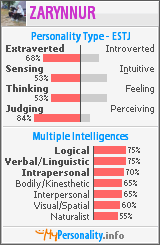Anger is a secret weapon of man towards of evils but sometimes its result’s in the destruction of many noble qualities. It snatches away the wisdom of man and thus he becomes a brute beast devoid of any sense.
Anger is a temptation of satan and deception of satan.
Anger is the root of all evils.
Anger is a spark of fire that are always bursting.
Anger is a very bad condition that weakens the person Iman (FAITH)
The meaning of anger is a rage fierce, displeasure, passion excited by a sense of wrong , physical pain, inflammation, mad, hot tempered, choleric, inflamed, A violent passion excited by real or supposed injury.
Anger is the strong feeling caused by extreme displeasure.
Anger is a strong feeling of annoyance, displeasure and hostility.
During anger, one can physically or verbally abuse a person that he or she loves, hurt another living being like an animal, or during the dejection phase of anger, one can even hurt him- or herself and even commit suicide. Prophet Mohammad gave us the medicine for that saying:
"Shake hands and rancour will disappear. Give gifts to each other and love each other and enmity will disappear".
Also Prophet Mohammad said:
Anger is viewed as a form of sexual reaction and healthy response that has evolved to enable people to deal with threats. Three types of anger are recognized by psychologists: The first form of anger, named "hasty and sudden anger" by Joseph Butler, an 18th century English bishop, is connected to the impulse for self-preservation. It is shared between humans and non-human animals and occurs when tormented or trapped. The second type of anger is named "settled and deliberate" anger and is a reaction to perceived deliberate harm or unfair treatment by others. These two forms of anger are episodic. The third type of anger is however dispositional and is related more to character traits than to instincts or cognitions. Irritability, sullenness and churlishness postures are examples of the last form of anger.

The external expression of anger can be found in facial expressions, body language, physiological responses, and at times in public acts of aggression. The facial expression and body language are as follows.
The facial and skeletal musculatures are strongly affected by anger. The face becomes flushed, and the brow muscles move inward and downward, fixing a hard stare on the target. The nostrils flare, and the jaw tends toward clenching. This is an innate pattern of facial expression that can be observed in toddlers. Tension in the skeletal musculature, including rising of the arms and adopting a squared-off stance, are preparatory actions for attack and defence. The muscle tension provides a sense of strength and self-assurance. An impulse to strike out accompanies this subjective feeling of potency.
Physiological responses to anger include an increase in the heart rate, preparing the person to move, and increase of the blood flow to the hands, preparing them to strike. Perspiration increases (particularly when the anger is intense). This is a direct effect of excessive adrenalin in our system. Our physical strength increases although spiritual strength decreases.
Our intellect or power to reason disappears, and things we would not justify in a normal state become acceptable

Anger many give disadvantages to all people especially to students. Anger affects the person who is angry as well as all the people who are touched by that person's anger. An angry person is likely to speak harshly and utter obscenities. In addition, anger affects a person's health. Doctors have discussed the relationship of anger to physiological complications such as thrombosis and high blood pressure. An angry person may also cause both psychological and physical damage to himself or herself as well as his/her family. Sometimes angry people hurt themselves if they are unable or out of reach of the people at whom they want to direct their anger. At other times, angry people may physically hurt their children, their spouse, or other people. A high proportion of the pronouncements of divorce occur when people are angry.
Anger is a temptation of satan and deception of satan.
Anger is the root of all evils.
Anger is a spark of fire that are always bursting.
Anger is a very bad condition that weakens the person Iman (FAITH)
The meaning of anger is a rage fierce, displeasure, passion excited by a sense of wrong , physical pain, inflammation, mad, hot tempered, choleric, inflamed, A violent passion excited by real or supposed injury.
Anger is the strong feeling caused by extreme displeasure.
Anger is a strong feeling of annoyance, displeasure and hostility.
During anger, one can physically or verbally abuse a person that he or she loves, hurt another living being like an animal, or during the dejection phase of anger, one can even hurt him- or herself and even commit suicide. Prophet Mohammad gave us the medicine for that saying:
"Shake hands and rancour will disappear. Give gifts to each other and love each other and enmity will disappear".
Also Prophet Mohammad said:
"A strong person is not the person who throws his adversaries to the ground. A strong person is the one who contains himself when he is angry".
Anger is viewed as a form of sexual reaction and healthy response that has evolved to enable people to deal with threats. Three types of anger are recognized by psychologists: The first form of anger, named "hasty and sudden anger" by Joseph Butler, an 18th century English bishop, is connected to the impulse for self-preservation. It is shared between humans and non-human animals and occurs when tormented or trapped. The second type of anger is named "settled and deliberate" anger and is a reaction to perceived deliberate harm or unfair treatment by others. These two forms of anger are episodic. The third type of anger is however dispositional and is related more to character traits than to instincts or cognitions. Irritability, sullenness and churlishness postures are examples of the last form of anger.

The external expression of anger can be found in facial expressions, body language, physiological responses, and at times in public acts of aggression. The facial expression and body language are as follows.
The facial and skeletal musculatures are strongly affected by anger. The face becomes flushed, and the brow muscles move inward and downward, fixing a hard stare on the target. The nostrils flare, and the jaw tends toward clenching. This is an innate pattern of facial expression that can be observed in toddlers. Tension in the skeletal musculature, including rising of the arms and adopting a squared-off stance, are preparatory actions for attack and defence. The muscle tension provides a sense of strength and self-assurance. An impulse to strike out accompanies this subjective feeling of potency.
Physiological responses to anger include an increase in the heart rate, preparing the person to move, and increase of the blood flow to the hands, preparing them to strike. Perspiration increases (particularly when the anger is intense). This is a direct effect of excessive adrenalin in our system. Our physical strength increases although spiritual strength decreases.
Our intellect or power to reason disappears, and things we would not justify in a normal state become acceptable

Anger many give disadvantages to all people especially to students. Anger affects the person who is angry as well as all the people who are touched by that person's anger. An angry person is likely to speak harshly and utter obscenities. In addition, anger affects a person's health. Doctors have discussed the relationship of anger to physiological complications such as thrombosis and high blood pressure. An angry person may also cause both psychological and physical damage to himself or herself as well as his/her family. Sometimes angry people hurt themselves if they are unable or out of reach of the people at whom they want to direct their anger. At other times, angry people may physically hurt their children, their spouse, or other people. A high proportion of the pronouncements of divorce occur when people are angry.
---------------------------------------------------------------------------------------
















